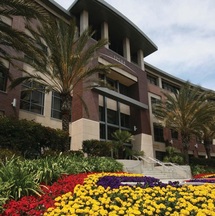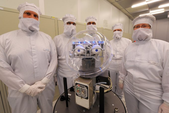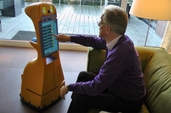History
MetraLabs was founded in Germany in 2001. Since 2004 the company has specialized on the development and production of autonomous mobile robots for industrial and personal applications. In 2008, MetraLabs has introduced the first interactive shopping robot for home improvement stores that autonomously guides customers to requested product locations (over 60,000 products distributed at areas of more than 150,000 sqft). Since then, the company has sold robots in various application areas. For example, autonomous robots that transport used trays back to kitchens in fast food restaurants, that handle material in industrial plants, or that assist elderlies in their familiar home environments.
The successful application of these products results from a well-balanced combination of industrial quality and state-of-the-art robotics technologies. The safeness of the systems is approved by the German Technical Inspection Agency (TÜV). As the first robotics company, MetraLabs' robots are certified to fulfill all European requirements on autonomous mobile systems operating in public areas. Our systems are also qualified to operate in clean room environments with cleanliness levels up to ISO class 3 / US FED class 1.
For further information, please visit the website of our partner MetraLabs GmbH in Germany: www.metralabs.com
For further information, please visit the website of our partner MetraLabs GmbH in Germany: www.metralabs.com
MetraLabs Automation, Inc.

In 2013, MetraLabs Automation, Inc. was launched in San Diego, California to continue this success outside of Europe. MetraLabs Automation will focus on the development and the marketing of autonomous mobile robots for automation tasks in several application areas. The will include the semiconductor market, where our system can help lowering human-caused contaminations and failures; the pharmaceutical market, where our systems enable a consistent and scalable production scheme ranging from R&D to mass production facilities; the analytical industry, in which our robots can increase traceability of sample management and handling; and the health-care market, where our transportation systems can help lowering costs and optimizing processes in hospitals and nursing homes.




